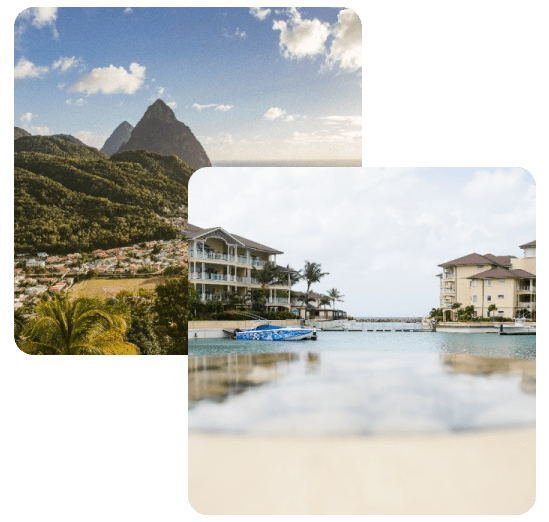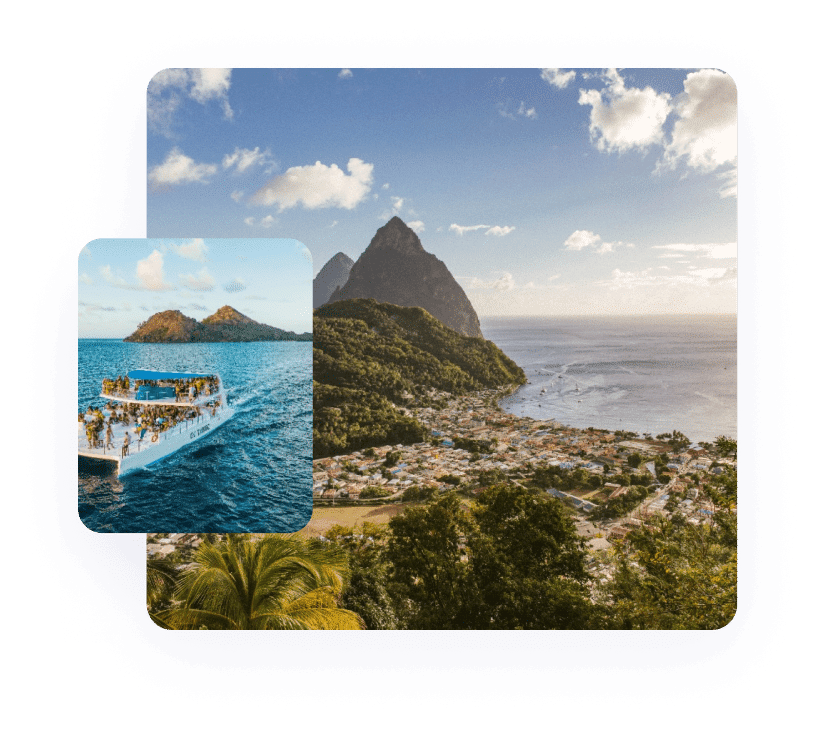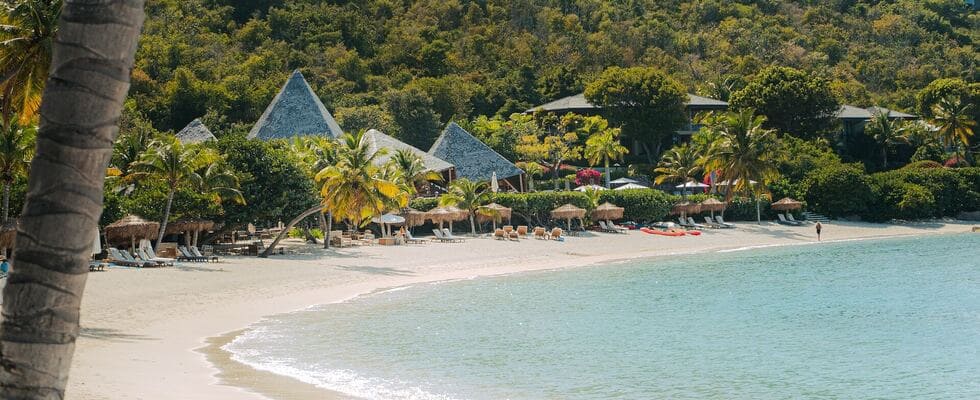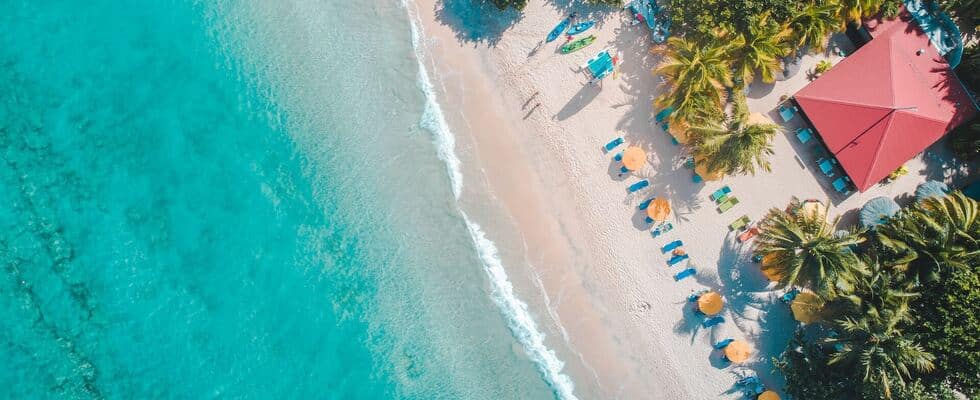The Caribbean region is a tropical paradise for nature enthusiasts, beach lovers, foodies, adrenaline junkies, and laidback travelers. Located east of the American mainland, the region boasts 7,000 islands comprising sovereign states and overseas territories of Great Britain, France, and the Netherlands.
Each island’s rich cultural tapestry and varied offerings provide enticing attributes for a diverse range of individuals considering living in the Caribbean. From quality education at the prestigious University of the West Indies, awe-inspiring national parks like Pigeon Island National Park, and not forgetting some of the world’s most immaculate world-class beaches, the Caribbean promises a multifaceted and enriching lifestyle.
This article will examine the pros and cons of living in the Caribbean, from pros like a warm climate and favorable tax conditions to cons like the risk of natural disasters and underdeveloped infrastructure.
Pros and Cons of Island Life in the Caribbean
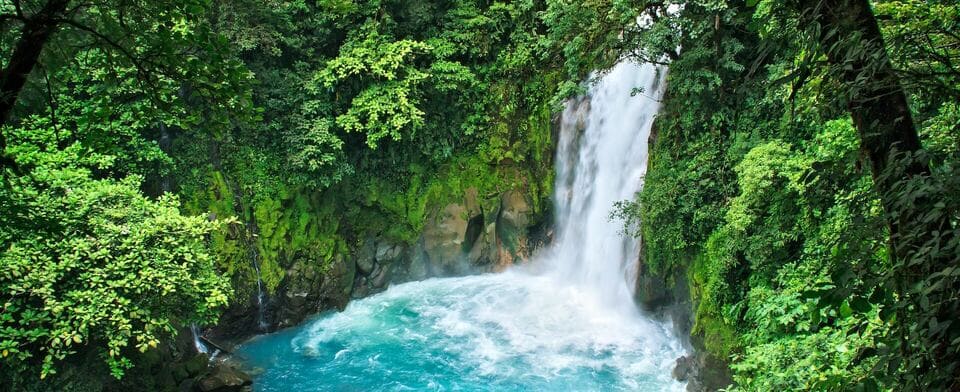
Life in the Caribbean is unlike living in a bustling city center. While several Caribbean islands have modern infrastructure and vibrant traditions, expats can expect to live a slower pace of life in the Caribbean.
Pros of living in the Caribbean

Warm weather
The Caribbean presents a year-round tropical climate, meaning the islands experience Rainy and dry seasons. The rainy season for most islands generally occurs between May and October, when temperatures and humidity tend to be higher. During this time, you can expect a higher chance of tropical storms. If you’re not a fan of the rain, you may prefer to look towards the Southern Caribbean (Aruba, Bonaire, and Curaçao), which tends to experience very little rain even during rainy seasons.
White-sand beaches
If there’s one thing we know for sure, the Caribbean is home to some of the world’s most stunning beaches. Crystal-clear waters, powdery white sands, and swaying palm trees are just a few factors contributing to the region’s reputation as the spot for serenity.
There are countless idyllic white sand beaches to choose from across thousands of islands, including Caracas Beach in Puerto Rico, Grace Bay in Turks and Caicos, and Margens Bay Beach in the US Virgin Islands.
Safety and security
Generally, Caribbean cointries are quite safe and have lower crime rates than many US and UK cities. St Lucia and Antigua and Barbuda are considered two of the safest islands in the Caribbean. For example, Antigua and Barbuda had one of the lowest burglary rates in the world in 2020. Other islands popular safe Caribbean destinations include Barbados, Montserrat, and St Kitts and Nevis.
Outdoor activities
The Caribbean’s optimal climate and diverse landscapes present numerous outdoor activities for outdoor enthusiasts. Countries like Costa Rica offer hiking and ziplining through lush rainforests. Almost all Caribbean islands present optimal scuba diving and snorkeling conditions through crystal-clear turquoise waters and pristine coral reefs. Beyond scuba diving, you can go deep-sea fishing off the coast of Grenada and sailing in the British Virgin Islands.
Nature enthusiasts enjoy hikes that offer unmatched views of the Atlantic Ocean, the Caribbean Sea, and the region’s natural beauty, while those eager to explore the region may jump at the chance to go island hopping.
Caribbean cuisine
Caribbean cooking is epitomized by bold and hearty flavors, thanks to influences from Indigenous America, Europe, Asia, and Africa. Meat and seafood are widely consumed across the region and prepared in various ways. Typical dishes include jerk chicken in Jamaica, conch fritters in St Kitts and Nevis, and Sancocho in the Dominican Republic. There’s also a wide variety of options for vegans and vegetarians in the Caribbean, including Trinidad and Tobago’s curry channa and aloo.
Multicultural society
With its unique blend of cultural diversity from indigenous, Asian, African, and European colonial influences, most Caribbean islands have a unique and rich cultural heritage. You can view works of Caribbean painters and sculptors at the Gallery of Caribbean Art in Barbados, speak Spanish and dance salsa in countries like Cuba, or observe Diwali and other Indian religious holidays and cultural events in St Kitts and Nevis.
International travel
Tourism is the primary driver of the economy of the Caribbean. As such, major airports in the Caribbean, including Luis Muñoz Marín International Airport, Sangster International Airport, and Grantley Adams International Airport, offer easy access through direct flights to and from international hubs such as London, Miami, New York, and Toronto. The Caribbean is also a popular destination for cruise ships, and many islands have ports that allow you to travel to other Caribbean islands easily.
Favorable tax environment
One of the most significant advantages of living in the Caribbean is favorable taxes. The Caribbean offers beneficial tax policies and regimes for individuals and businesses to attract foreign investment in the region. Different countries and islands have different policies, and many are considered tax havens by expats and international investors. The British Overseas Territory of Turks and Caicos Islands is a tax-neutral jurisdiction with zero personal income tax, wealth, inheritance, or capital gains tax.
Business-friendliness
The region’s tax advantages establish an ideal environment for businesses looking to lower their tax liabilities while still being able to operate in the Caribbean and internationally. Investors can purchase and operate approved real estate developments and earn a permanent residency permit or Caribbean citizenship for their investment. The Cayman Islands, another British Overseas Territory, is the ideal destination for business owners to incorporate offshore corporations seamlessly.
Cons of living in the Caribbean
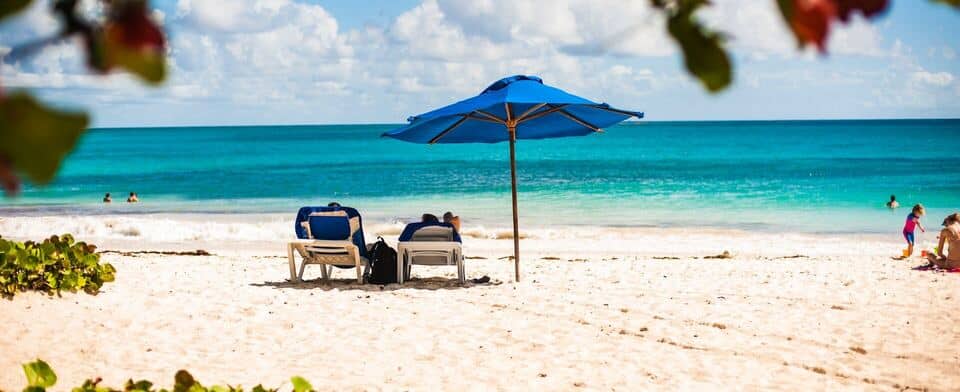
Natural disasters
The Caribbean comes with the risk of experiencing natural disasters. Caribbean hurricane season starts on 1 June and ends around 30 November yearly. Residents of many Caribbean islands experience heavy rainstorms, flooding, earthquakes, landslides, and hurricanes.
While hurricanes pose a significant concern in the Caribbean, especially for beachfront property owners and those with real estate vulnerable to severe weather conditions, it’s essential to note that Caribbean hurricanes follow a specific trajectory known as the hurricane belt, sparing some islands in the region from their direct impact. Grenada is a Caribbean island situated outside the belt that avoids the Caribbean’s destructive hurricane season.
Earthquakes tend to occur in locations like Trinidad and Tobago. In contrast, destinations like St Vincent and the Grenadines tend to experience volcanic eruptions because of the volcanoes that call them home. Fortunately, many of the volcanoes located in the Caribbean are dormant.
Costly regional travel
While the numerous ports, ships, catamarans, yachts, ferries, and sailboats make it easy to island hop, traveling around the Caribbean is costly. Air travel between the islands is relatively expensive. Whether you want to spend a day exploring the US Virgin Islands or take a scenic ferry route from St Vincent to the Grenadines, planning is vital to ensure a budget-friendly experience.
Slower pace of life
The Caribbean’s slower pace of life is the idyllic setting for many American expats, particularly those looking for a change of pace after a busy work life in a big city. It can be an adjustment as things may take longer to get done. Furthermore, the slower pace of life and local culture of taking time to do everything may not appeal to everyone.
High cost of living
While the most affordable Caribbean islands have a cheaper cost of living than the US and the UK, some aspects of life drive up the cost of certain things. Caribbean nations are relatively isolated from the rest of the world, and their heavy reliance on tourism means they import many consumer goods.
As such, import duties and tariffs tend to drive up the cost of goods. However, residents can purchase local goods at an affordable cost. Fortunately, many Caribbean destinations offer a range of lifestyle options, from glamorous luxury to everyday affordability, to suit the monthly budget of most expats.
Developing infrastructure
Many Caribbean islands are still developing and may lack certain basic infrastructure that is commonplace in a more developed country. However, Caribbean countries have begun investing more in developing their infrastructure.
A big focus for many islands, such as Dominica and St Kitts and Nevis, has been establishing programs and partnerships to help facilitate renewable energy investment, setting them on the path to becoming sustainable island states. St Lucia offers an investment program that provides the opportunity to invest in the island’s infrastructure and obtain Caribbean citizenship and enjoy a permanent vacation.
High crime rates on some islands
Although the Caribbean is generally safe, some larger and smaller islands are more prevalent with crime. Tourists are frequently issues with travel advisories when traveling to Caribbean islands like Jamaica, Haiti, and the Dominican Republic.
Small island environment
Moving from a big, bustling city to a smaller, more laidback Caribbean island will be an adjustment, as there will be more limited entertainment, restaurant, bar, club, and theatre options. You may also find that activities start to feel a bit repetitive, as island life revolves around water sports and activities in nature that are typical of an island.
It is important to remember that life is what you make it, no matter where you live. A smaller island means a smaller community of close-knit individuals. While this can result in less privacy, it also enables you to form strong bonds through activities you enjoy. The Caribbean is also full of expats, allowing you to connect with people who give you a sense of home.
Bureaucracy
Caribbean bureaucracy can frustrate Caribbean residents due to its often cumbersome and inefficient nature. Banking in the Caribbean and obtaining permits, licenses, or government approvals can be slow and bureaucratic. This bureaucratic red tape hinders economic development and investment opportunities, deterring many potential investors.
Several islands in the Eastern Caribbean, including Antigua and Barbuda and Grenada, have established citizenship by investment programs, facilitating the ease of doing business and investing in the country as foreign nationals while granting dual citizenship.
Limited job opportunities
Another drawback of living on a smaller island is that there tend to be limited work opportunities. There are many thriving industries in the Caribbean, but many tend to relate to tourism. As such, jobs in many countries relate to this sector, which can be limiting. If you are a digital nomad or work online, you may find that these restrictions do not affect you as much.
How to Live in the Caribbean
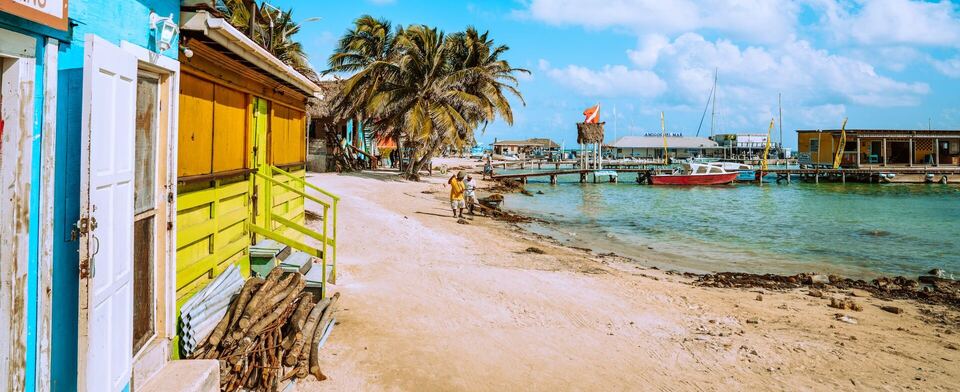
Five Caribbean islands – Antigua and Barbuda, Dominica, Grenada, St Kitts and Nevis, and St Lucia – offer citizenship by investment programs that allow foreigners to obtain Caribbean citizenship and start a new life in the Caribbean. Each investment program allows real estate investment, and qualifying investments begin at $100,000.
Retiring in the Caribbean
The Caribbean is a popular destination for retirees due to its warm weather, beautiful beaches, friendly locals, relatively low cost of living, and English as the primary language. The Caribbean’s best places to retire offer all of this and more for retirees considering moving to the Caribbean. With these excellent factors in mind, finding the ideal location to retire in the Caribbean is an exciting prospect.
Why work with Global Citizen Solutions?

- Global approach by local experts. We are corporate members of the Investment Migration Council, with local expertise in all five Caribbean citizenship programs.
- 100 percent approval rate. We have never had a case rejected and will offer you an initial free-of-charge due diligence assessment before signing any contract.
- Independent service and full transparency. We will present to you all the investment options available, and all expenses will be discussed in advance, with no hidden fees.
- An all-encompassing solution. A multidisciplinary team of immigration lawyers, investment specialists, and tax experts will take into consideration all your and your family's mobility, tax, and lifestyle needs.
- Confidential service and secure data management. All private data is stored within a GDPR-compliant database on a secure SSL-encrypted server.
Frequently Asked Questions about Living in the Caribbean
Yes, a US citizen can live in the Caribbean using the Long-Stay Visa or Residence Permit. These allow you to stay in the region for longer than 180 days. Alternatively, you can apply to one of the five Caribbean islands that offer citizenship by investment programs, allowing you to obtain citizenship and live in the Caribbean permanently.
US citizens are already living in the Caribbean without a residency permit or Caribbean citizenship. Puerto Rico and the US Virgin Islands are US territories in the Caribbean and home to US citizens.
The Caribbean is undoubtedly a good place to live. Many Caribbean islands like Dominica and St Lucia offer a low cost of living without compromising quality of life. In contrast, others like Barbados and the Turks and Caicos Islands offer a more luxurious lifestyle. Montserrat is one of the safest countries in the Americas; the Caribbean island offers all residents safety, security, and political stability.
Students will find an excellent education system, with prestigious universities like the University of the West Indies and St George’s University. Retirees will enjoy the relaxed lifestyle that allows them to spend their golden years basking in the sun surrounded by friendly locals.
While there are some instances of crime in the Caribbean, several islands in the Caribbean offer safe environments for expats. The following islands are considered as some of the safest in the Caribbean due to their relatively low crime rates:
- St Lucia
- Antigua and Barbuda
- Barbados
- Grenada
- St Kitts and Nevis
- Montserrat
The best Caribbean island to live on will depend on your circumstances and requirements. For example, Turks and Caicos and the Cayman Islands have excellent opportunities for those looking to optimize their taxes, Belize nestled in Latin America offers a mix of laidback days and lively nightlife, St Lucia and the Dominican Republic offer a low cost of living and beautiful beaches, and the Bahamas provides a more luxurious lifestyle for those in search of gated communities in an island paradise.
Medical facilities and services available to those living in the Caribbean islands vary. They range from basic clinics to larger, more advanced hospitals offering specialized treatments and procedures. Different islands will have different facilities and levels of expertise in medical care. If you require specialized medical care, you may benefit from living on a Caribbean island equipped to offer advanced services. Otherwise, you must travel to another island with more advanced medical facilities.
Life in the Caribbean islands consists of diverse, vibrant cultures and multilingual societies. Each island has its own historical influences that have resulted in different cultural traditions, music, dance, cuisine, cocktails, and festivals. Visiting several Caribbean islands is a great idea to determine which cultural and social experience appeals to you.
The Caribbean has a large and diverse expat community, as the region is very expat-friendly. The Caribbean offers a low cost of living, high quality of life, favorable tax benefits for individuals and businesses, a tropical climate, and several appealing residency and citizenship by investment programs that have attracted expats from across the globe.
Relocating to the Caribbean from the US can be rewarding if you seek a change of pace, warmer climate, and political stability. The region offers stunning natural beauty, pristine beaches, lush landscapes, a relaxed ambiance, and stable governance that can enhance your quality of life. Additionally, several islands have citizenship programs, with the dual advantage of acquiring your dream property and obtaining Caribbean citizenship.


